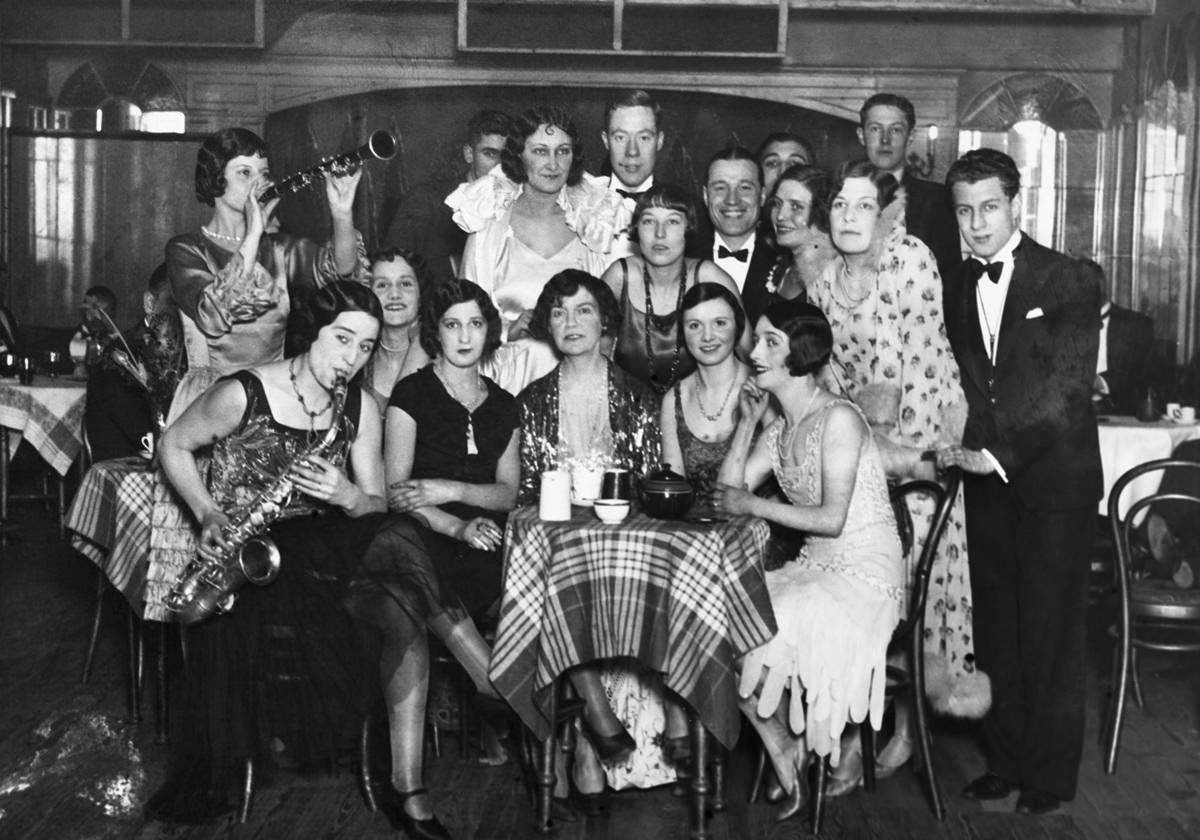Doris Day‘s journey into the world of acting wasn’t one that she initially set out to embark upon. With a career that started in music, Day’s enchanting voice was her ticket to stardom. However, it wasn’t long before Hollywood noticed her charm and potential as an actress. Her transition from songstress to screen siren seemed effortless. Day’s early roles in the late 1940s and early 1950s showcased not just her singing prowess but also a natural acting ability that resonated with audiences and critics alike.
Rise to Stardom
As the 1950s progressed, Day’s star power intensified. She had an innate ability to breathe life into her characters, a skill that made her one of the most bankable stars of her time. Whether it was a musical, a romantic comedy, or a dramatic piece, Day approached each role with a professionalism and dedication that was evident in her performances. Her on-screen presence was a blend of approachability and glamour, a combination that endeared her to the American public.
Acting Skills and Range
Day’s versatility as an actress was one of her most defining traits. She was not one to be pigeonholed into a single type of role. Her career spanned a range of genres, from the lighthearted allure of “Calamity Jane” to the dramatic depths of “Love Me or Leave Me.” What made Day stand out was her ability to convey complex emotions with authenticity and precision. Her comedic timing was impeccable, often bringing a sense of levity to her roles that was both refreshing and captivating.
Collaborations and Co-Stars
Throughout her illustrious career, Doris Day worked with some of the biggest names in Hollywood. Her chemistry with co-stars like Rock Hudson and James Garner was palpable, making their films together memorable long after their release. Day’s ability to match the energy and acting prowess of her colleagues helped her to create some of the most iconic performances of the era. It was this adaptability and her willingness to push her own boundaries that kept her at the forefront of the industry for decades.
#1 Calamity Jane (1953)
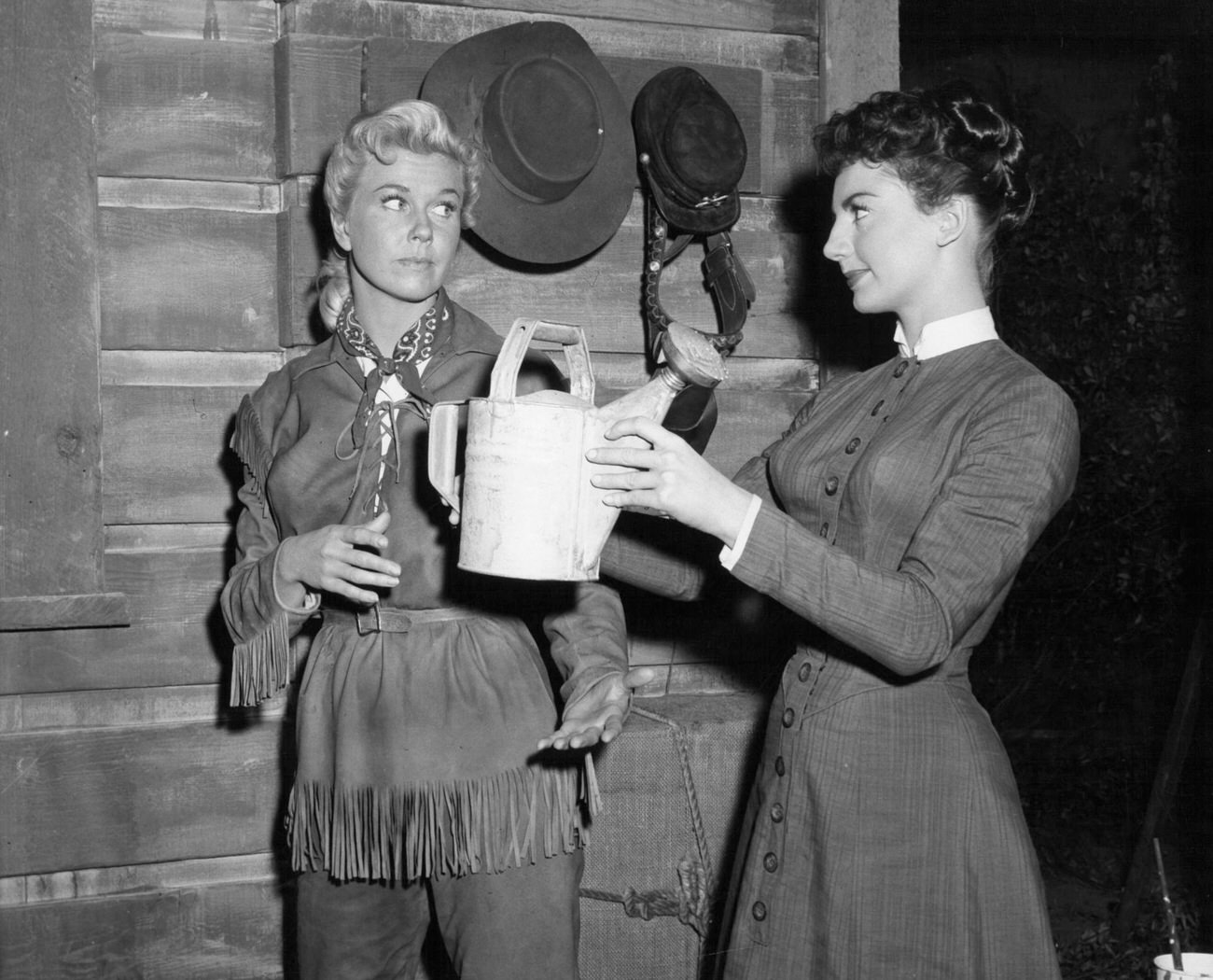
It is a lively musical set in the American Old West. In this 1953 film, Doris Day stars as the title character, Calamity Jane, a boisterous and sharpshooting frontierswoman. The movie follows Jane's adventures in Deadwood, South Dakota, where she is renowned for her wild ways and marksmanship. Doris Day brings a vibrant and energetic spirit to the role, capturing Jane's tomboyish nature with a touch of endearing warmth. The plot thickens when Jane promises to bring a famous stage performer to Deadwood, but instead mistakenly brings back her maid, Katie Brown.
As Calamity Jane, Day performs memorable musical numbers, the most famous being "Secret Love," which became a hit song outside the movie as well. Her portrayal of Jane is a blend of toughness and vulnerability, showing her character's evolution from a rough-and-tumble gal to one who discovers her femininity and falls in love with Lieutenant Danny Gilmartin
#2 Pillow Talk (1959)
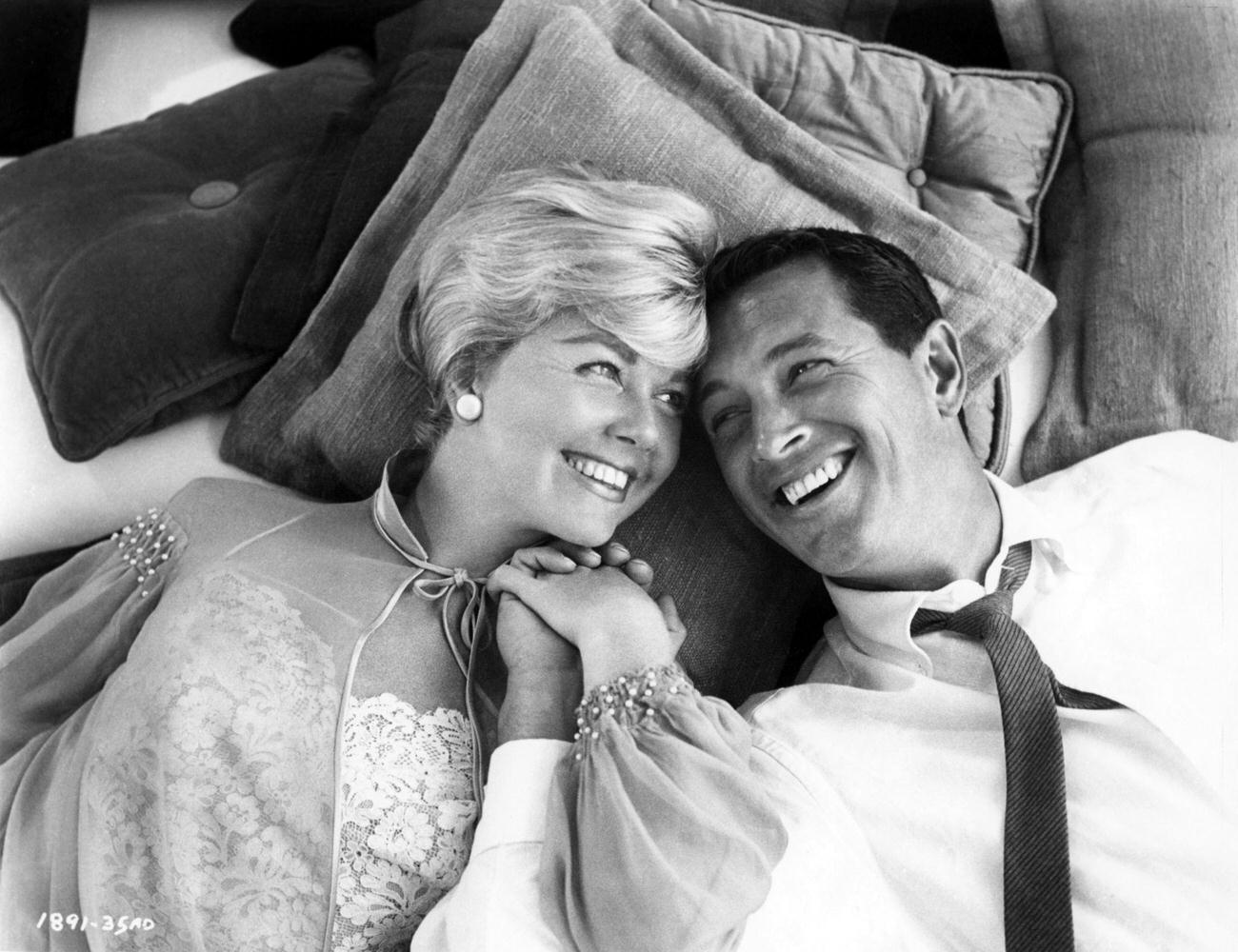
It is a romantic comedy from 1959 where Doris Day plays Jan Morrow, an interior decorator. In this movie, Jan shares a party line with Brad Allen, played by Rock Hudson, a charming playboy and composer who hogs the phone with his singing and flirting. Jan and Brad's relationship starts off with frustration over the phone situation, leading to witty exchanges and a comedic battle of the sexes.
As Jan Morrow, Doris Day delivers a performance that's both sophisticated and endearing. Her character is independent and successful, which was a refreshing portrayal for women during the 1950s. The plot takes a twist when Brad sees Jan for the first time and is instantly attracted to her. He decides to assume a fake identity to romance her, leading to a series of humorous and heartwarming scenes.
#3 Love Me or Leave Me (1955)
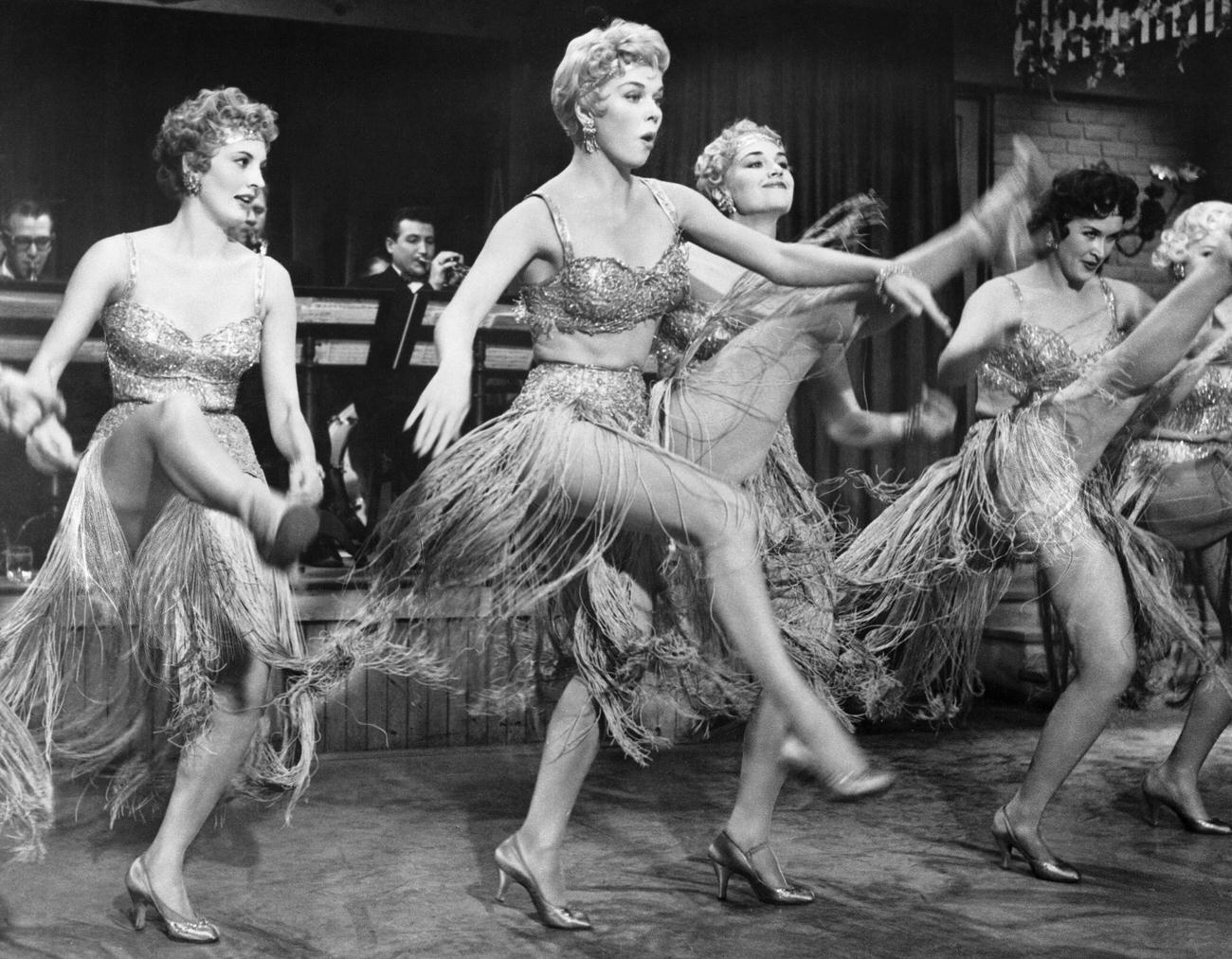
It is a 1955 biographical musical drama where Doris Day plays the role of Ruth Etting, a real-life singer who rose to fame in the 1920s. In the film, Ruth works her way from a dance hall singer to a Broadway star with the help of a mobster named Marty Snyder, portrayed by James Cagney. Snyder falls in love with Ruth and helps to advance her career, but his possessive nature and temper lead to a tumultuous relationship.
Doris Day's portrayal of Ruth Etting is powerful, capturing the singer's ambition and vulnerability. She skillfully performs a range of musical numbers that showcase her vocal talents while also embodying the emotional struggles of her character. Ruth desires both success and true love, and the film explores how she navigates the challenges that come with her rise to stardom.
#4 The Man Who Knew Too Much (1956)
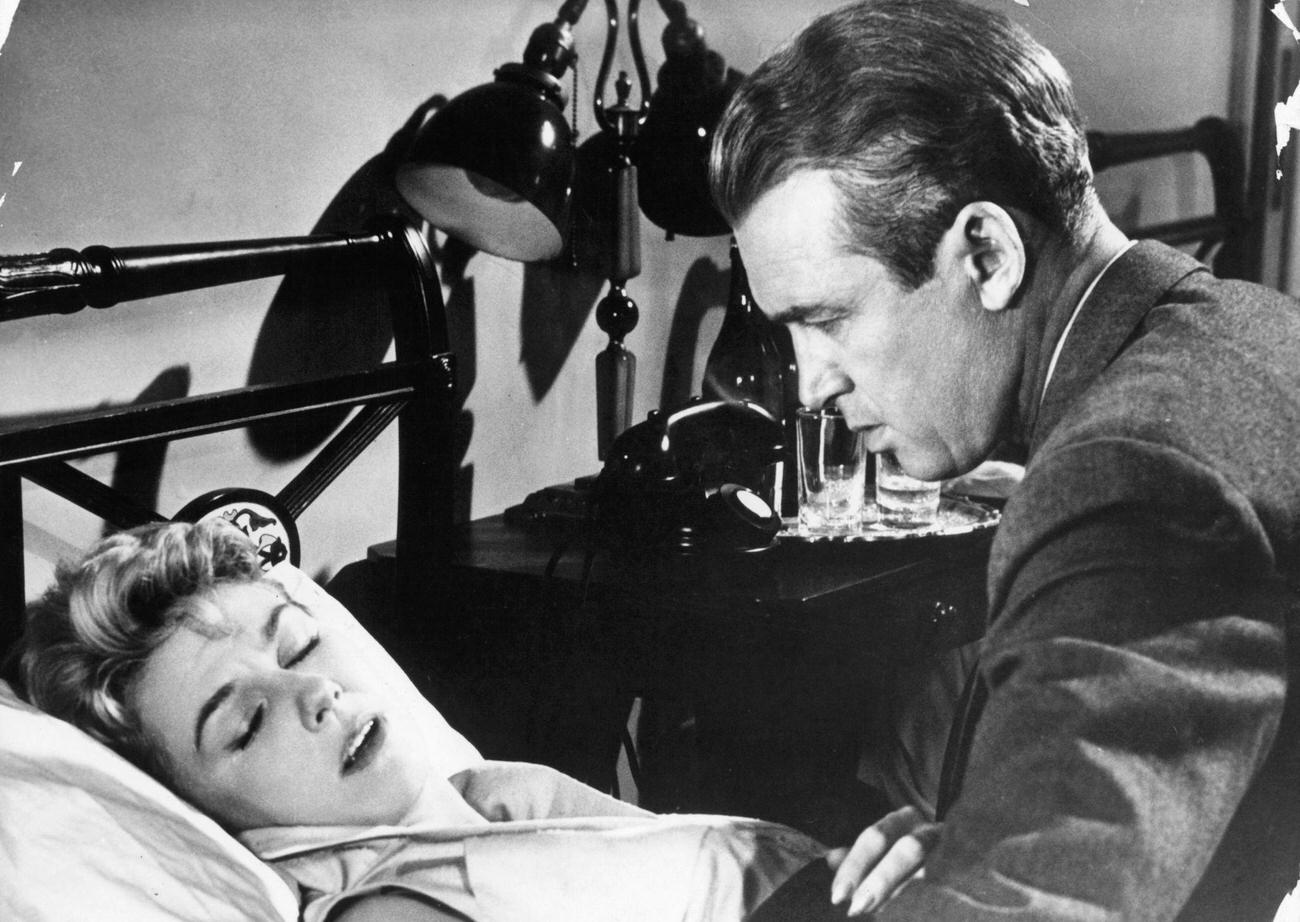
It is a suspenseful thriller from 1956 directed by Alfred Hitchcock. Doris Day plays Jo McKenna, a famous singer who is vacationing with her family in Morocco. Her husband, Dr. Ben McKenna, is played by James Stewart. Their holiday takes a dark turn when they accidentally get caught up in an international assassination plot and their son is kidnapped to ensure their silence.
In the movie, Doris Day's character Jo is a strong and resourceful woman who finds herself in the midst of a dangerous situation. Day's acting conveys the tension and fear of a mother whose child's life is in jeopardy, yet she also exhibits poise and determination. One of the most iconic moments in the film is when Jo uses her singing talent to send a crucial message during a climactic scene, performing the song "Que Sera, Sera (Whatever Will Be, Will Be)" which became intrinsically linked with Day's real-life persona.
#5 The Pajama Game (1957)
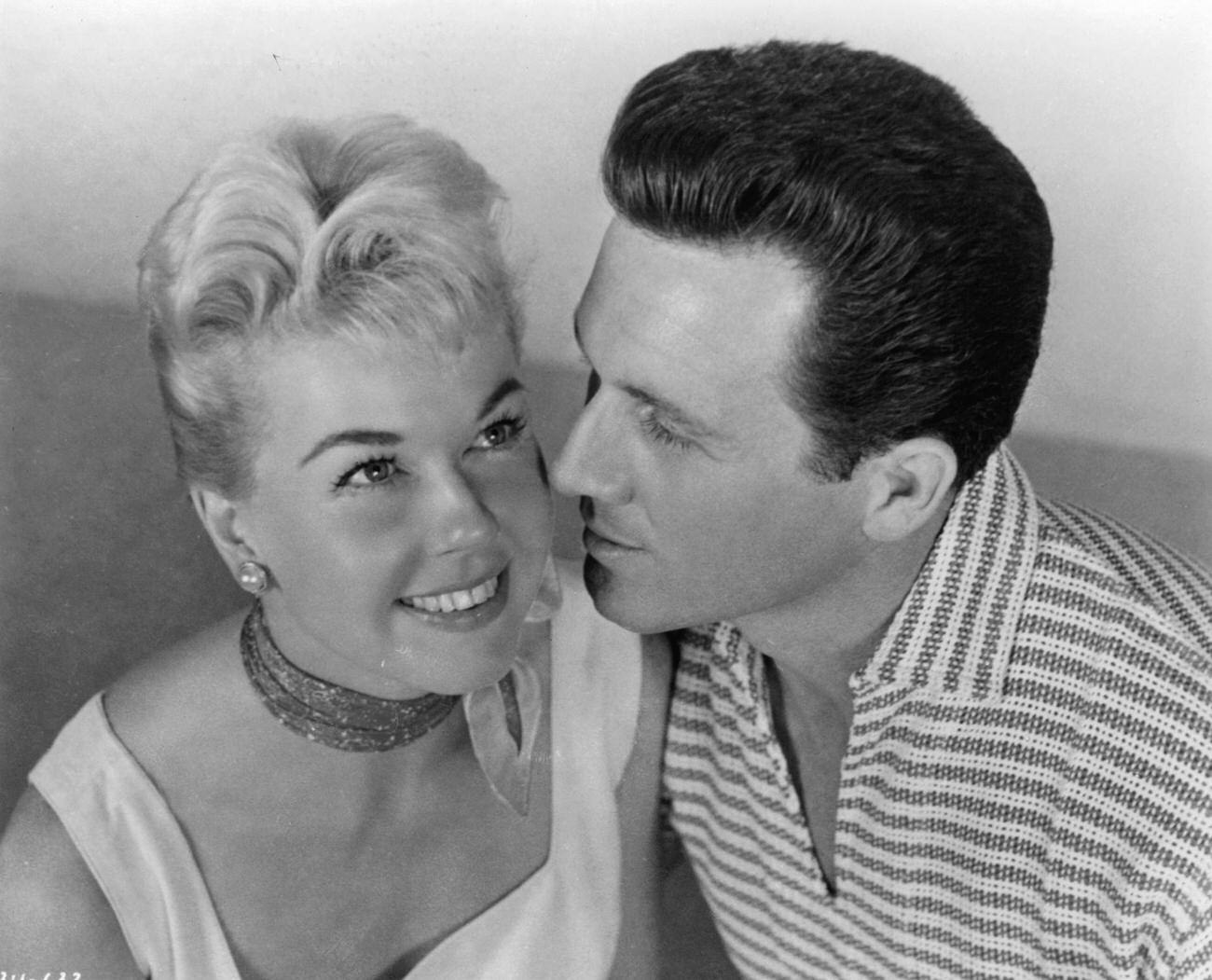
It is a 1957 musical comedy film in which Doris Day plays the role of Katherine "Babe" Williams. Babe works as a superintendent in a pajama factory and is a strong-minded union representative. The story revolves around labor troubles in the factory—a dispute over a 7½ cent pay raise.
Babe becomes romantically involved with the new factory superintendent, Sid Sorokin, played by John Raitt. This complicates things as they find themselves on opposite sides of the labor dispute. Doris Day brings her characteristic vibrancy and charm to Babe, infusing the character with a sense of independence and intelligence. She is portrayed as someone who's not just looking for love but also standing up for her fellow workers' rights.
#6 Lover Come Back (1961)
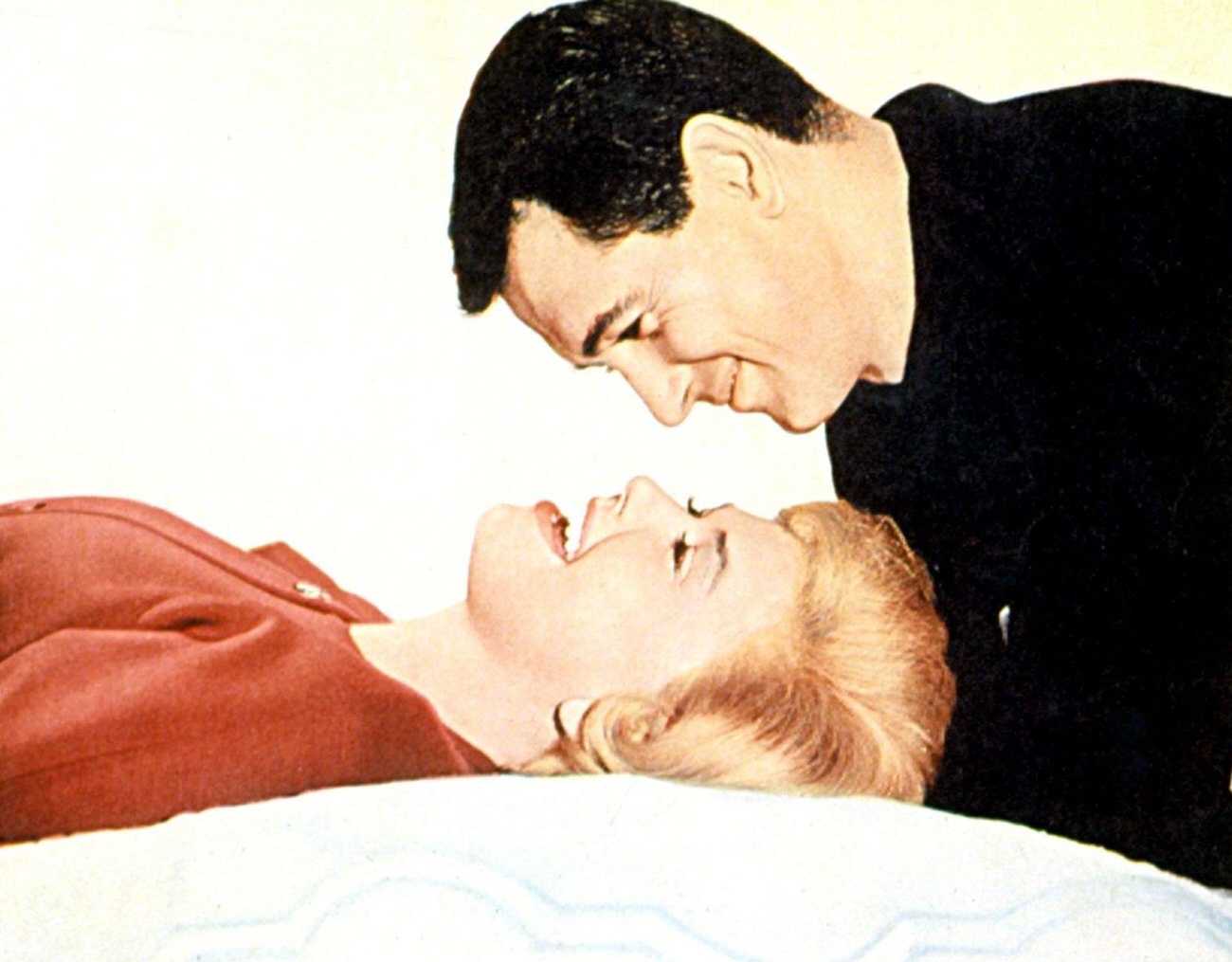
It is a 1961 romantic comedy featuring Doris Day as Carol Templeton, a talented and ethical advertising executive. She finds herself in direct competition with Jerry Webster, played by Rock Hudson, a rival ad executive known for his underhanded tactics and playboy lifestyle. The story is set in the cutthroat world of advertising in New York City, where Carol and Jerry vie for accounts with equal fervor but different methods.
Carol Templeton is incensed by Jerry's unethical practices and vows to get him expelled from the advertising industry. However, their professional rivalry takes a turn when Carol ends up falling for Jerry, not knowing his true identity. He creates a fictional product and persona to win her over, leading to a series of comical misunderstandings.
Doris Day's portrayal of Carol is the embodiment of wit, charm, and integrity. Her acting perfectly captures the indignation and competitive edge of a woman in a male-dominated industry, while also revealing the vulnerability and romantic yearnings beneath her poised exterior. Day and Hudson's on-screen chemistry sparkles, driving the film's humor and emotional beats.
#7 Please Don’t Eat the Daisies (1960)
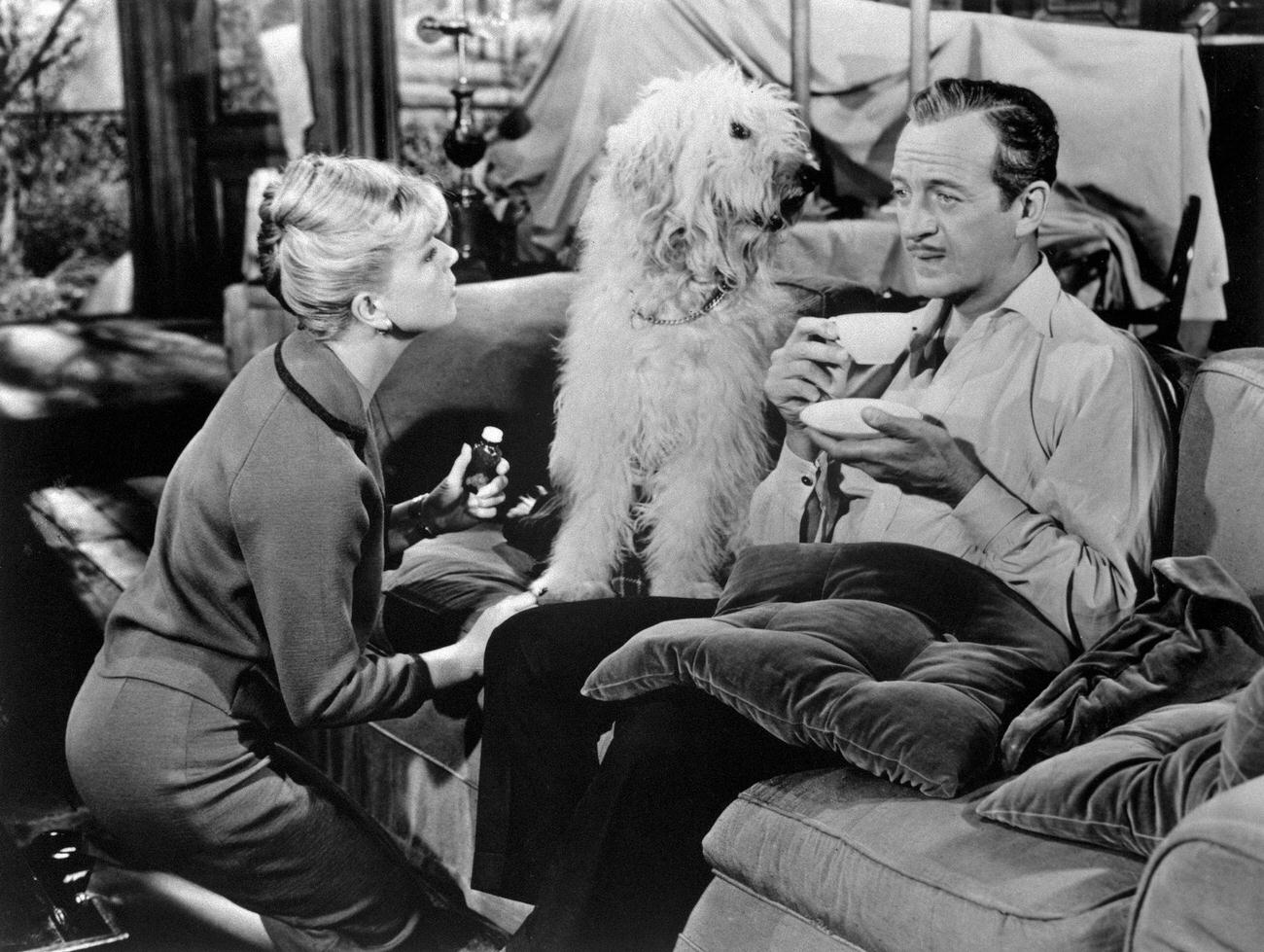
It is a 1960 family comedy where Doris Day plays Kate Mackay, a devoted wife and mother of four lively boys. The film follows the Mackay family as they move from the hustle and bustle of New York City to a more peaceful, yet chaotic, life in a rundown country house.
Kate's husband, Larry Mackay, played by David Niven, is a theater critic whose newfound success and busy city life keep him away from the family, leading to various comic and domestic challenges. Doris Day's character, Kate, is a former theater actress and playwright who has put her career on hold to focus on her family. Despite the mayhem of her household and the strains on her marriage, Kate remains cheerful, optimistic, and witty.
Doris Day’s performance showcases her ability to portray a warm, humorous, and relatable character. She brings an effortless charm to the role, balancing the loving care for her family with a touch of mischief as she navigates the complications of her new life.
#8 Teacher’s Pet (1958)
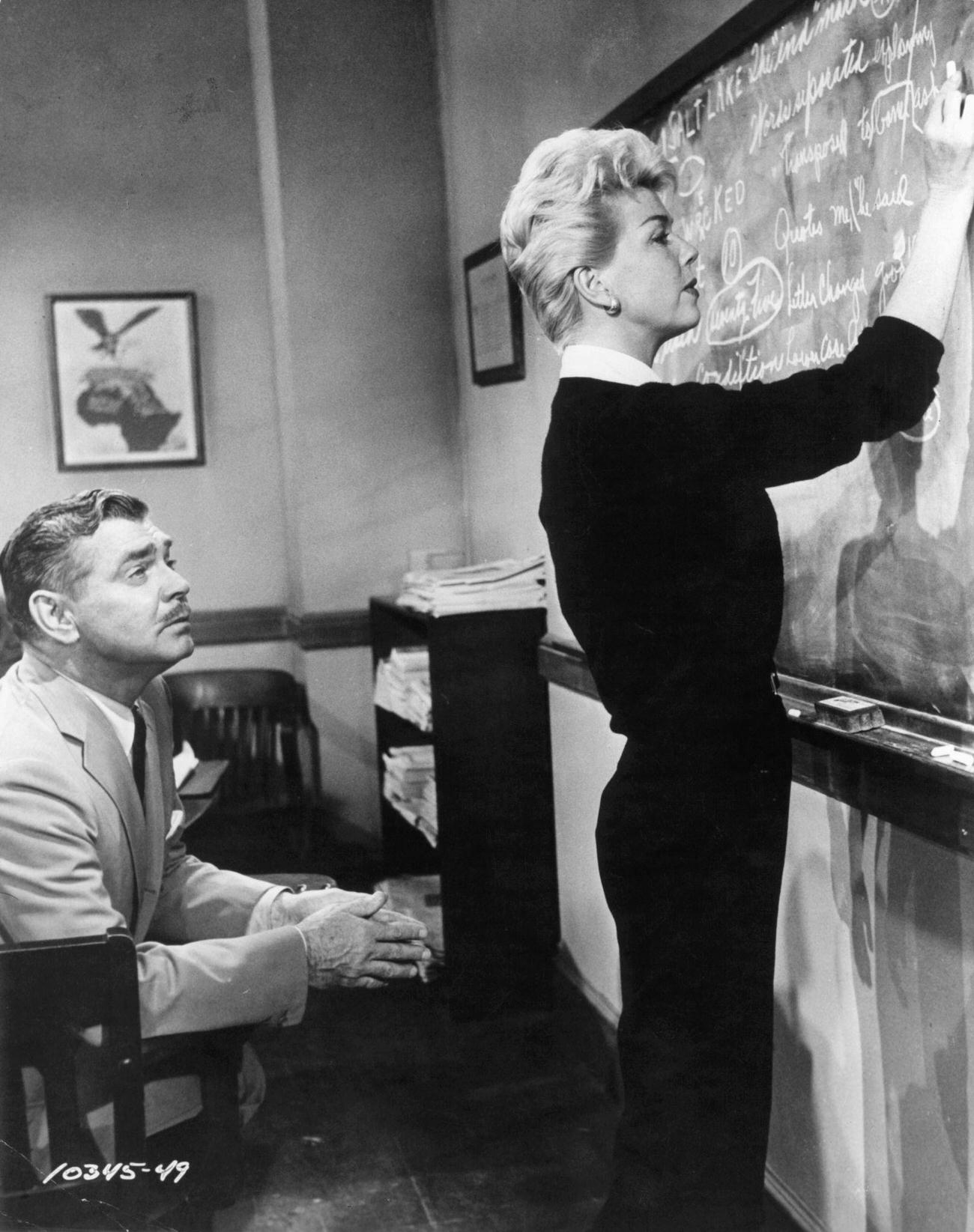
It is a 1958 romantic comedy where Doris Day plays Erica Stone, an earnest and dedicated journalism teacher. The film's plot centers around the clash between academia and practical experience.
Erica believes in education and the principles of journalism, and she challenges her students to aim high in their careers. The story takes an interesting turn when she unknowingly invites a hard-boiled newspaper editor, James Gannon (played by Clark Gable), to speak to her class. Gannon, who has a very cynical view of journalism education, initially scoffs at the idea and instead decides to join the class under an assumed name to prove his point that real-world experience trumps formal education.
Doris Day's character is intelligent, poised, and passionate about her profession. She represents the idealism of the academic world, contrasting sharply with Gannon's skepticism. Day delivers a performance filled with sincerity, and her character's dynamic with Gannon evolves from adversarial to romantic as they challenge each other's worldviews.
#9 Send Me No Flowers (1964)
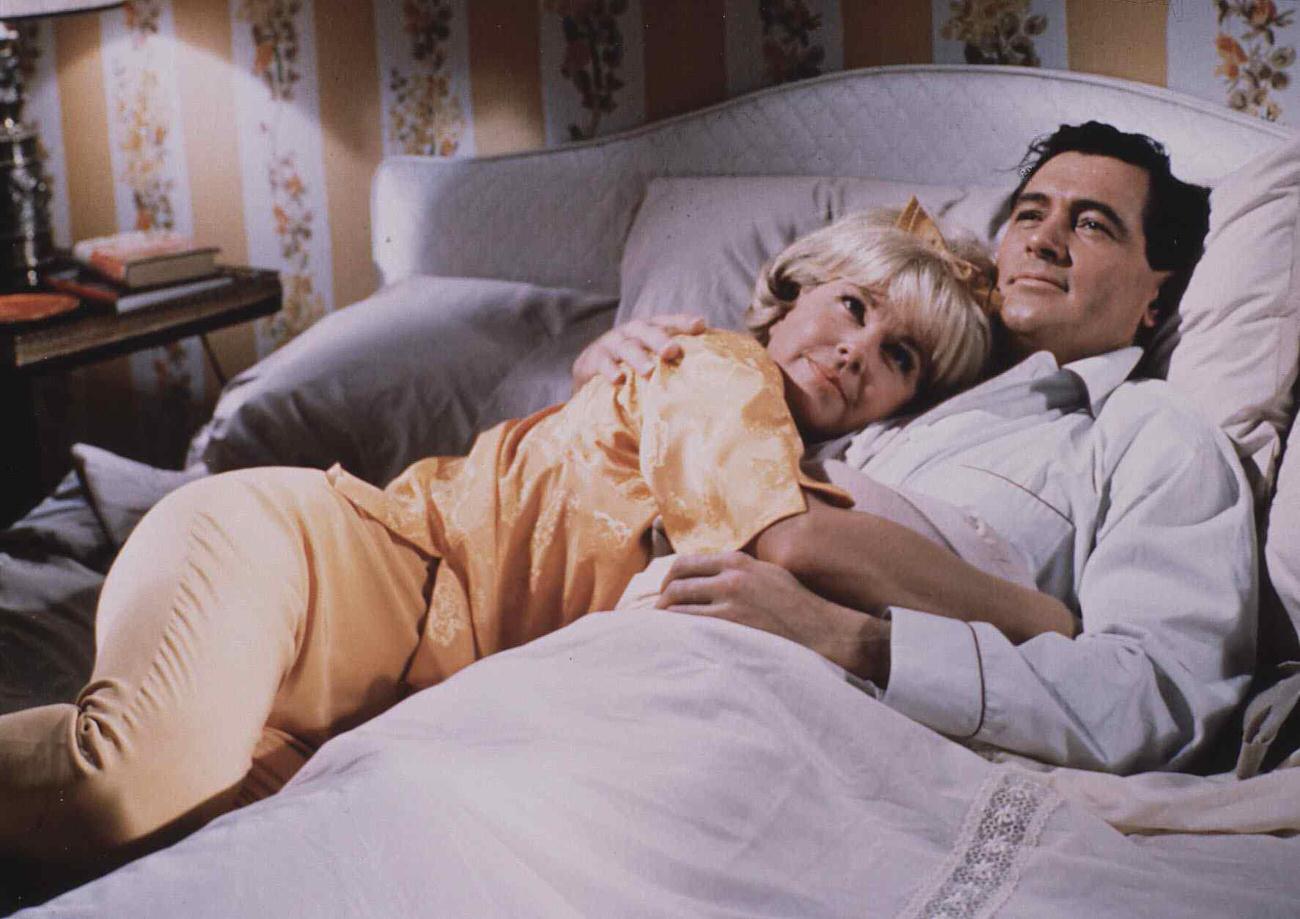
It is a 1964 romantic comedy featuring Doris Day as Judy Kimball, a dedicated and loving wife. The film's plot revolves around a misunderstanding when her husband, George Kimball, played by Rock Hudson, overhears his doctor discussing a case of terminal illness and mistakenly believes he is the one dying.
Believing he has only weeks to live, George decides to ensure Judy will be taken care of after his passing, leading to a series of comedic mishaps. He sets out to find her a new husband, but his secretive behavior leads Judy to suspect he's hiding something far different - perhaps an affair.
Doris Day's performance as Judy is filled with the charm and comedic timing she's known for. She embodies the role of a mid-century American housewife with a mix of wit and warmth. As the story unfolds, Judy's confusion and distress over her husband's odd behavior, combined with her underlying devotion, bring both humor and heart to the film.
#10 That Touch of Mink (1962)
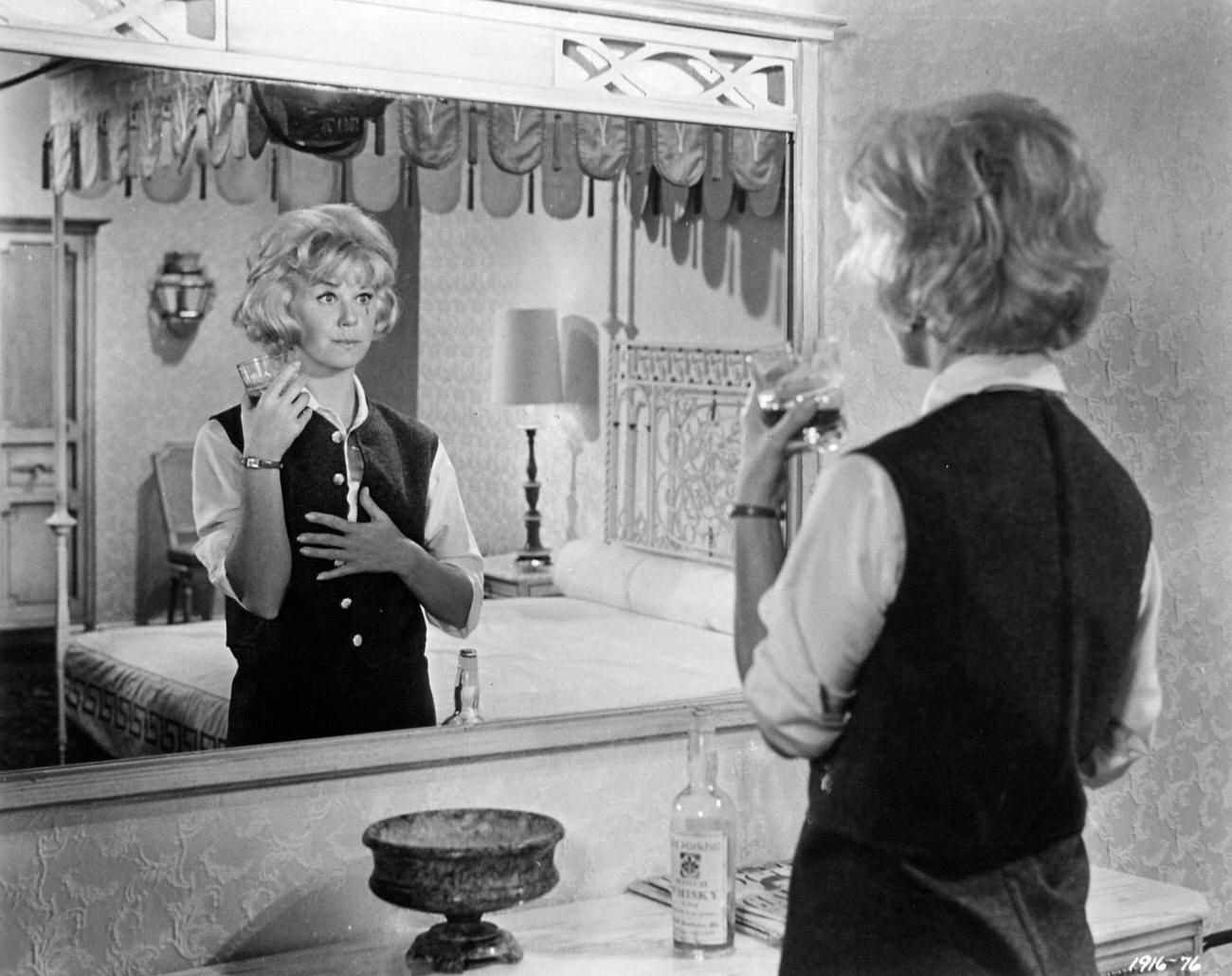
It is a 1962 romantic comedy where Doris Day plays Cathy Timberlake, a bright and principled young woman who encounters a wealthy businessman named Philip Shayne, played by Cary Grant. After Shayne's car splashes her dress with mud, he takes responsibility and begins courting her with lavish dates and gifts, introducing her to a world of wealth and high society.
Cathy's small-town values clash with the luxurious, sometimes superficial lifestyle that Shayne offers. She is taken with the charm and attention from Shayne but struggles with the implications of their relationship and what it means for her self-respect. Day’s character is determined to stick to her principles, despite the tempting offers Shayne presents to her.
Doris Day delivers a performance full of nuance, portraying a woman who is at once flattered, overwhelmed, and conflicted. She adds depth to Cathy, highlighting her moral dilemmas with a performance that is both humorous and touching. Day's acting makes Cathy relatable, showcasing her talent for playing characters that embody a sense of innocence and decency.
#11 Move Over, Darling (1963)
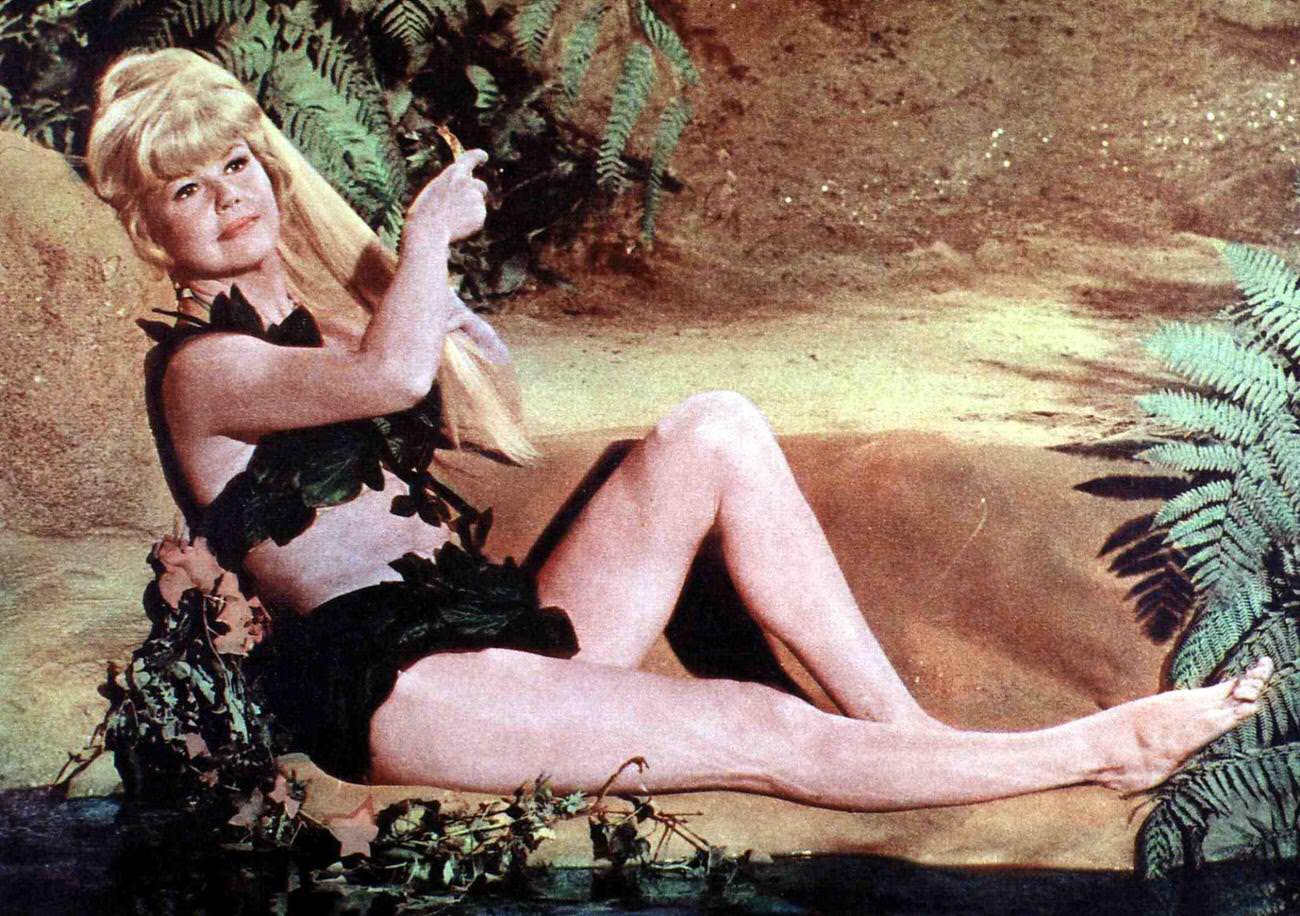
It is a 1963 comedy film where Doris Day plays Ellen Wagstaff Arden, a woman who has been stranded on a deserted island for five years. She is presumed dead, and her husband, Nick, played by James Garner, has her declared legally dead after a long search. On the day Nick gets remarried, Ellen is rescued and returns home, ready to resume her marital life.
Ellen’s unexpected return creates a hilarious predicament for Nick, who is now on his honeymoon with his new wife. Doris Day brings her trademark comedic flair to the role of Ellen, whose initial joy at returning to civilization quickly turns to shock as she discovers the new situation. Her portrayal is lively and filled with comic exasperation as she tries to reclaim her husband and her former life.
#12 The Thrill of It All (1963)
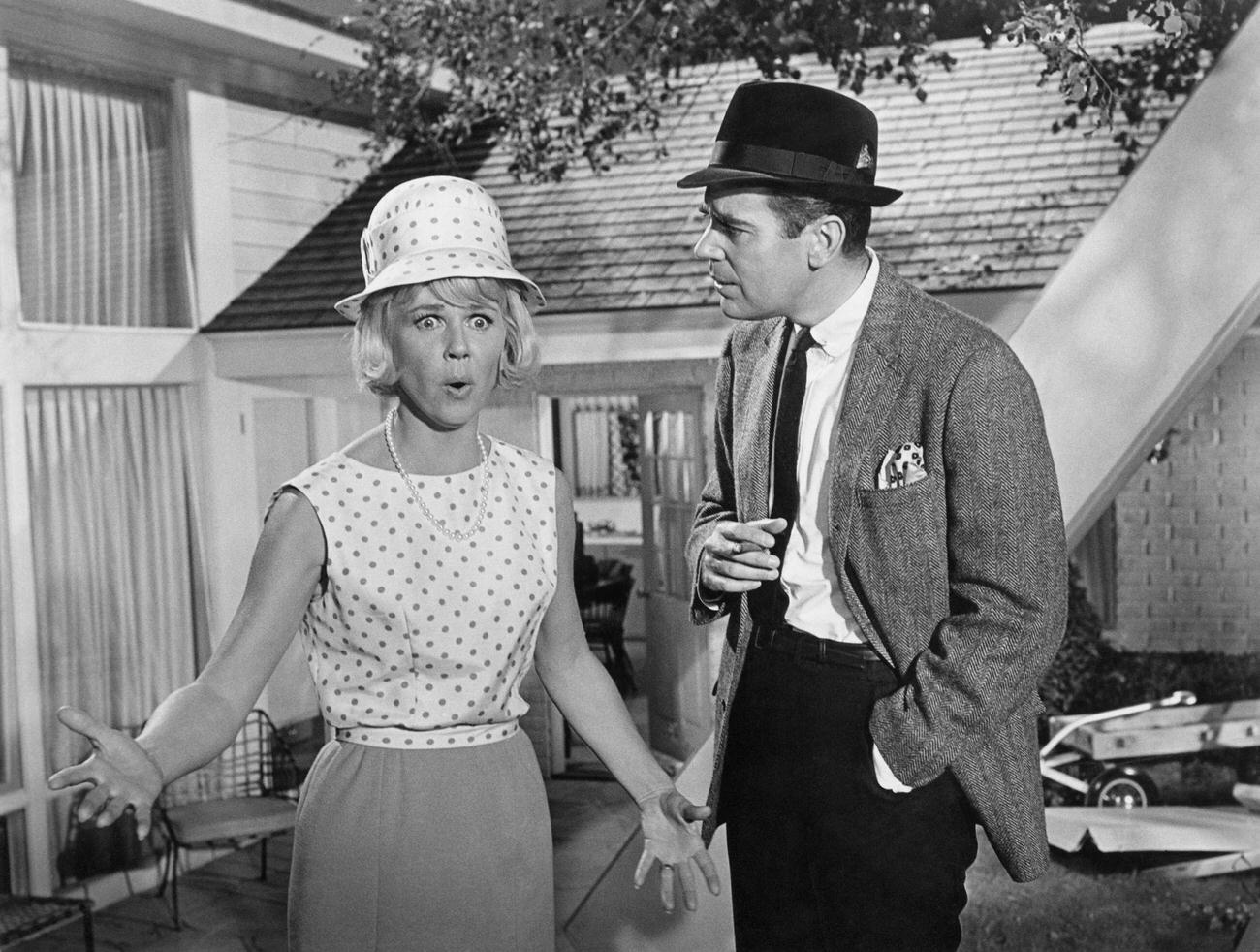
It is a 1963 comedy film featuring Doris Day as Beverly Boyer, a happy housewife who becomes an overnight celebrity. Beverly's life changes when she shares an off-the-cuff story about her family during a dinner party, which leads to her becoming the spokesperson for a soap company.
As Beverly's fame grows, her husband, Dr. Gerald Boyer, played by James Garner, finds it increasingly difficult to cope with the demands of her success on their family life. The film is a lighthearted look at the complications that ensue when work and family collide.
Doris Day’s portrayal of Beverly captures the character's transformation from a contented homemaker to a media sensation. She brings humor and grace to the role, effectively conveying the character's bewilderment and excitement at her unexpected success. Beverly’s charm and sincerity, along with her attempts to balance her public persona with her role as a wife and mother, provide the central comedic elements of the story.
#13 Midnight Lace (1960)
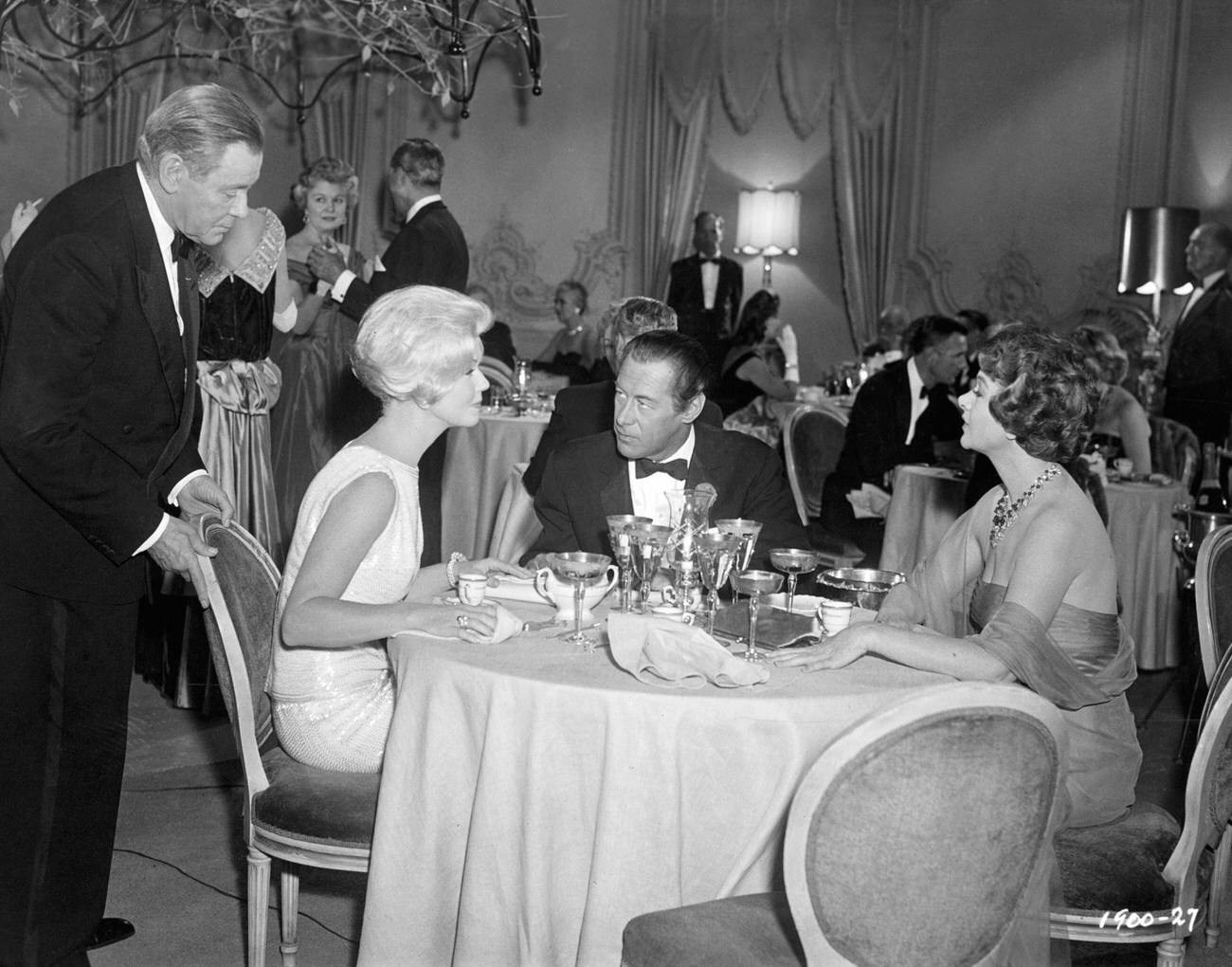
It is a 1960 thriller film in which Doris Day plays the role of Kit Preston, a wealthy American woman living in London. The story begins with Kit being threatened by a mysterious voice in the thick London fog, promising to kill her. The tension escalates when Kit receives a series of phone calls and encounters that suggest her life is in real danger.
Her husband, Anthony Preston, played by Rex Harrison, initially dismisses the threats as the result of her nervous imagination, but the danger becomes more apparent as the incidents continue. Day's character, Kit, is both vulnerable and strong, as she tries to convince everyone around her that the threat is real and not just a figment of her fear.
Doris Day's acting in "Midnight Lace" departs from her usual sunny and comedic roles, showcasing her range as she portrays a woman engulfed by paranoia and fear. Her performance is intense and gripping, as she captures the essence of a character who is desperate to be believed and to protect her own life against an unseen enemy.
#14 Young at Heart (1954)
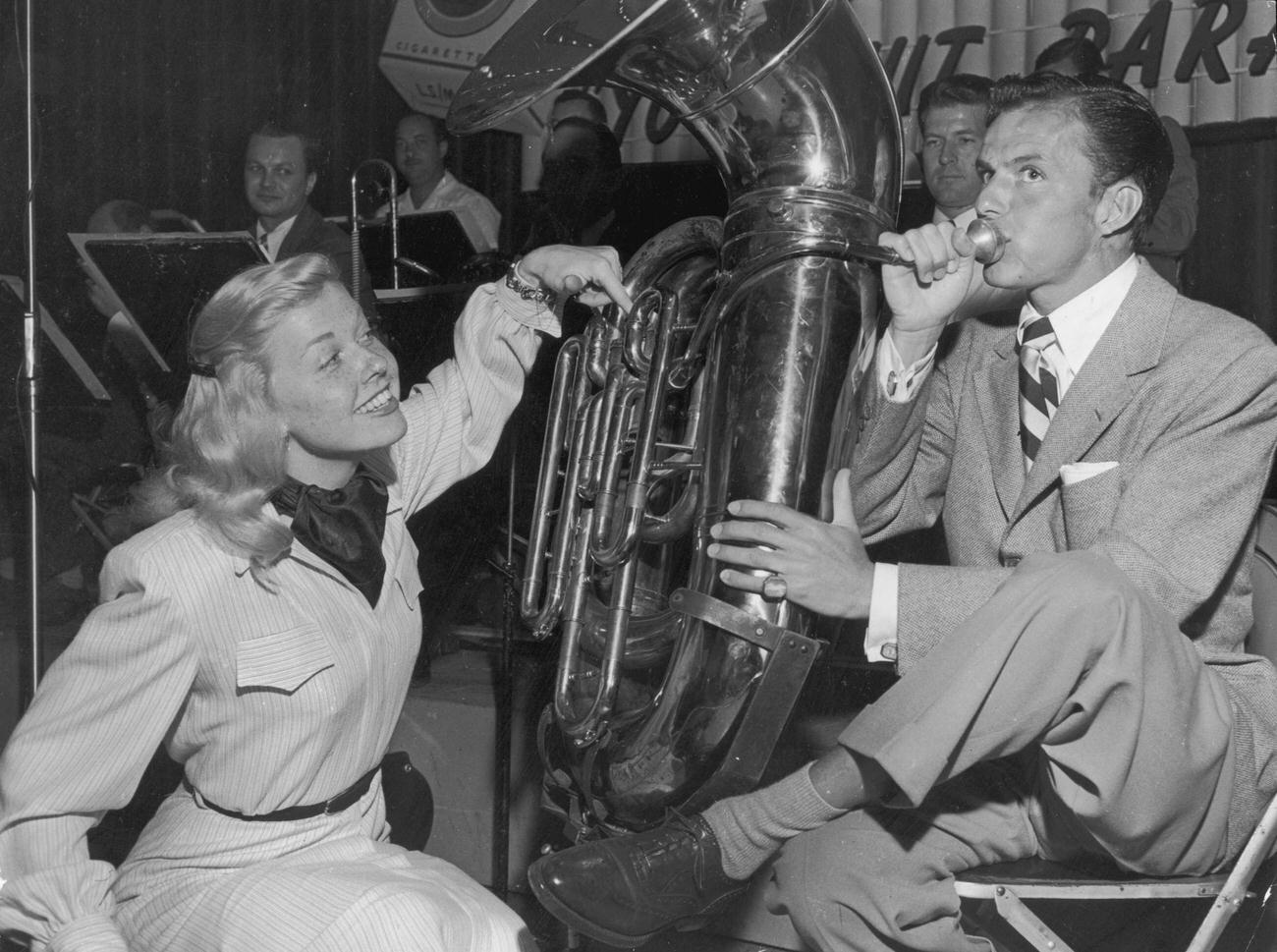
It is a 1954 musical drama featuring Doris Day as Laurie Tuttle, one of three daughters of a musically inclined family. The Tuttles are a close-knit family where music is a part of their everyday life. The arrival of a charismatic, yet cynical composer, Alex Burke, played by Gig Young, into the Tuttle home brings new excitement, especially for Laurie who becomes romantically involved with him.
However, when the talented but troubled musician Barney Sloan, portrayed by Frank Sinatra, comes to work with Alex and stays with the Tuttles, Laurie's feelings become complicated. Barney's brooding nature contrasts sharply with Laurie's optimistic outlook, yet she finds herself drawn to him.
Doris Day's performance as Laurie showcases her ability to balance the light-hearted with the dramatic. Her character is sweet, caring, and musically gifted, serving as a source of strength and inspiration to Barney. Day's singing talent is also central to "Young at Heart," with her voice adding depth to the film's emotional landscape.
#15 It Happened to Jane (1959)
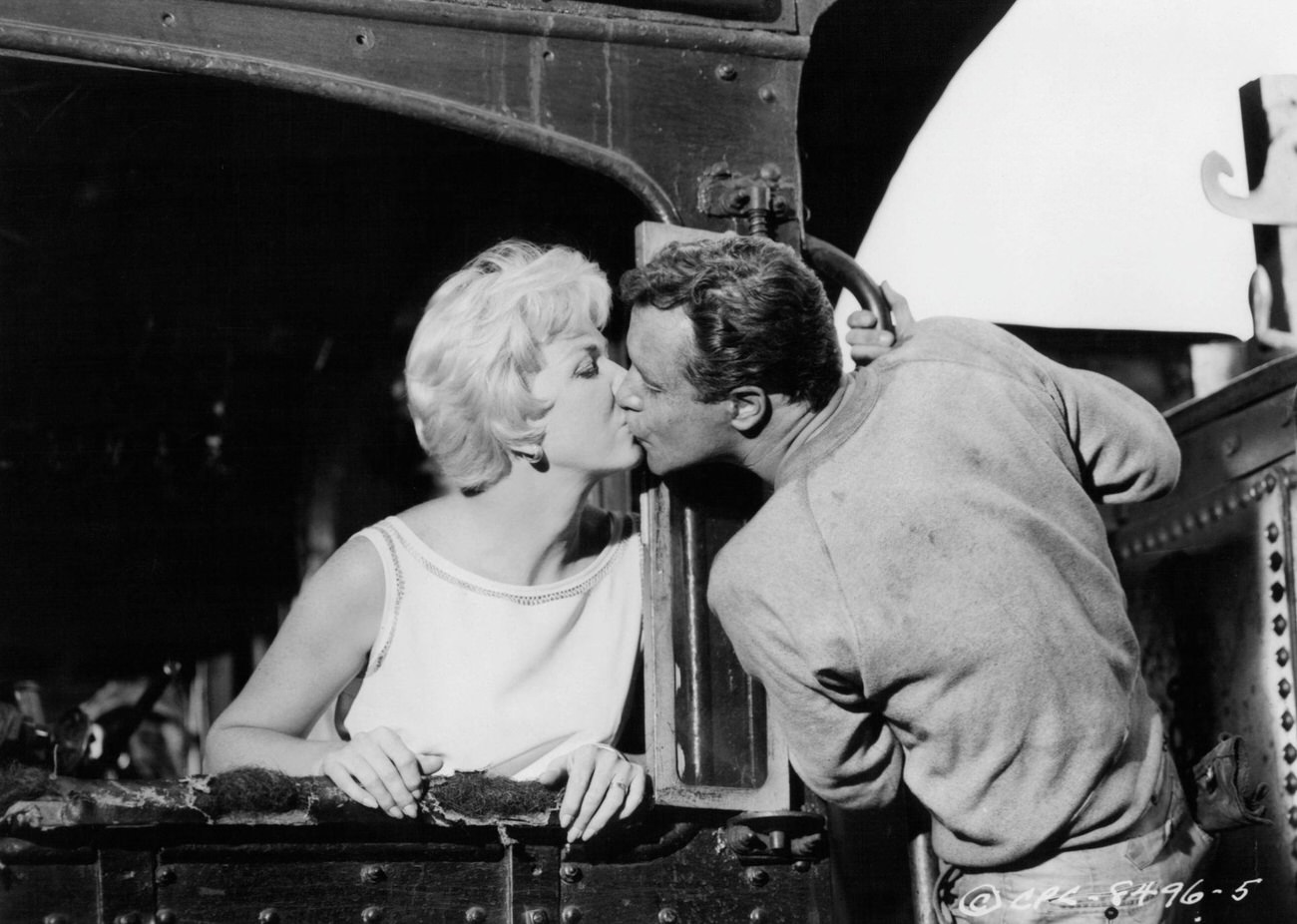
It is a 1959 comedy film starring Doris Day as Jane Osgood, a widowed mother of two living in Maine who runs a small lobster business. The plot kicks off when a shipment of her lobsters dies because a cargo train, owned by the E&P Railroad, fails to deliver them on time.
Jane's battle to save her business leads her to take on the railroad's callous and arrogant owner, Harry Foster Malone, played by Ernie Kovacs. With the help of her friend and local lawyer, George Denham (Jack Lemmon), Jane decides to sue the railroad, becoming a local hero and national celebrity in the process.
Doris Day's portrayal of Jane Osgood is full of the spunky determination and charm that defined many of her roles. She makes Jane both endearing and strong, a woman who, despite the odds, stands up for herself and her small-town values. Jane's courage and persistence in fighting the corporate giant resonate with the audience, as does her down-to-earth, relatable nature.


